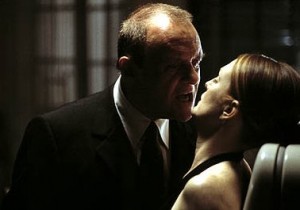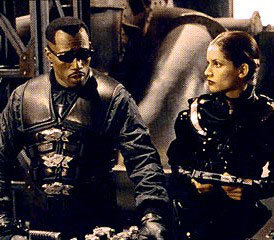The Sequel Rule
 Quite some time ago, I came to the realization that I had not been to a sequel in the theater since Hannibal, a book which I hated, but I was dragged by my ex and a friend who wanted to see it. I thought about why sequels were made and to what kind of movies they choose to make them to.
Quite some time ago, I came to the realization that I had not been to a sequel in the theater since Hannibal, a book which I hated, but I was dragged by my ex and a friend who wanted to see it. I thought about why sequels were made and to what kind of movies they choose to make them to.
Obviously they choose successful movies, but successful Hollywood movies. There isn’t going to be a Swingers 2: Still Money, or Life is Beautiful 2: Please don’t eat the Jews! And these successful Hollywood movies are generally films where there was a lot of time and money spent making.
When there is a sequel to a movie, it is one of two things. It is either an expansion of the core idea of the first film, or it is a louder and larger retread of the same material. If it is the former, if they had all time and money the first time, why couldn’t they get it right? If it’s the latter, why am I paying for them to repeat themselves? Therefore, I only rent sequels or watch them on cable. That way, the studio sees none of that money, and I can save my finances for something more deserving that hopefully will start a trend not of repetition, but originality.
 The only two times since I have instated this rule, that I regretted not seeing the movie in the theater was with Blade II and Spy Kids 2: Island of Lost Dreams*. This is because both not only expand on their initial film’s ideas; they improve on them, and transcend the notion of a sequel by being able to exist outside of their pigeonhole. Blade was a movie that did not look like the filmmakers, nor the actors were enjoying themselves, apart from the opening scene, and so the wasted its goth and action notions in favor of endless plot exposition and deadening dialogue. The sequel, as directed by Guillermo del Toro (in exchange for financing for The Devil’s Backbone) dumps all of that in favor of extremely skilled action sequences, a frenetic pace, amazing set design by David Cronenberg vet Carol Spier, and a sense of humor.
The only two times since I have instated this rule, that I regretted not seeing the movie in the theater was with Blade II and Spy Kids 2: Island of Lost Dreams*. This is because both not only expand on their initial film’s ideas; they improve on them, and transcend the notion of a sequel by being able to exist outside of their pigeonhole. Blade was a movie that did not look like the filmmakers, nor the actors were enjoying themselves, apart from the opening scene, and so the wasted its goth and action notions in favor of endless plot exposition and deadening dialogue. The sequel, as directed by Guillermo del Toro (in exchange for financing for The Devil’s Backbone) dumps all of that in favor of extremely skilled action sequences, a frenetic pace, amazing set design by David Cronenberg vet Carol Spier, and a sense of humor.
The first Spy Kids is an amazing achievement in terms of how it manages to combine idiocy with incredibly bizarre and imaginative visuals and still keep its tongue in cheek attitude. It’s a kid’s movie only in the way that it doesn’t have any real violence or cursing in it. Spy Kids 2 is as if writer/director/editor/caterer Robert Rodriguez put every ridiculous idea you had as a child, where you let your mind run wild to where you no longer made any sense to anyone but yourself and put them all on screen simultaneously. I sat at home in awe, trying to figure out how he got into my head.
*Since this was written, in 2003, I have only one other sequel to add, Eli Roth’s Hostel: Part II, an enormous and hilarious improvement on the middling original.



